Workplaces and workflows will change as more people work alongside machines
Research and publish the best content.
Get Started for FREE
Sign up with Facebook Sign up with X
I don't have a Facebook or a X account
Already have an account: Login
Get weekly or monthly digest of all posts in your inbox: https://fmcs.digital/wim-subscribe
Curated by
Farid Mheir
 Your new post is loading... Your new post is loading...

Gonzalo Moreno's curator insight,
December 9, 2016 5:06 AM
TASK Management vs. PEOPLE Management, a superclassic...

Abel Linares's curator insight,
July 30, 2016 1:08 PM
Potencial amortización #digital del #trabajo según Mckinsey.
Gráfico interactivo que analizar 800 trabajos diferentes. Concluye que con la tecnología actual el 45% del trabajo se puede automatizar, un 13% adicional cuando las máquinas entiendan el lenguaje humano a un nivel de ciudadano medio. Las previsiones son instalar 1.3 millones de robots entre 2015 y 2018

Jean-Simon Venne's curator insight,
February 2, 2016 9:39 PM
Thanks Farid for this interesting analysis, to be followed. 
Grant Tucker's curator insight,
February 14, 2016 11:10 AM
This is why we all should be innovating within our chosen professions

Jean-Simon Venne's curator insight,
February 2, 2016 9:39 PM
Thanks Farid for this interesting analysis, to be followed. 
Grant Tucker's curator insight,
February 14, 2016 11:10 AM
This is why we all should be innovating within our chosen professions 
Farid Mheir's curator insight,
July 20, 2016 2:09 PM
World Economic Forum survey of executives has compiled a list of jobs that are most at risk of being replaced by computers before 2025. The infographic shows a summary of the data which is available in detail here: http://reports.weforum.org/future-of-jobs-2016/ |

Curated by Farid Mheir
Get every post weekly in your inbox by registering here: http://fmcs.digital/newsletter-signup/
|




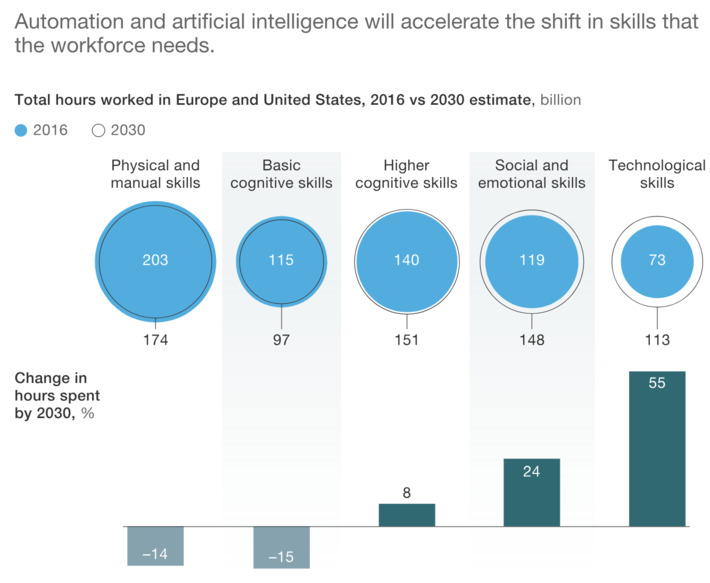

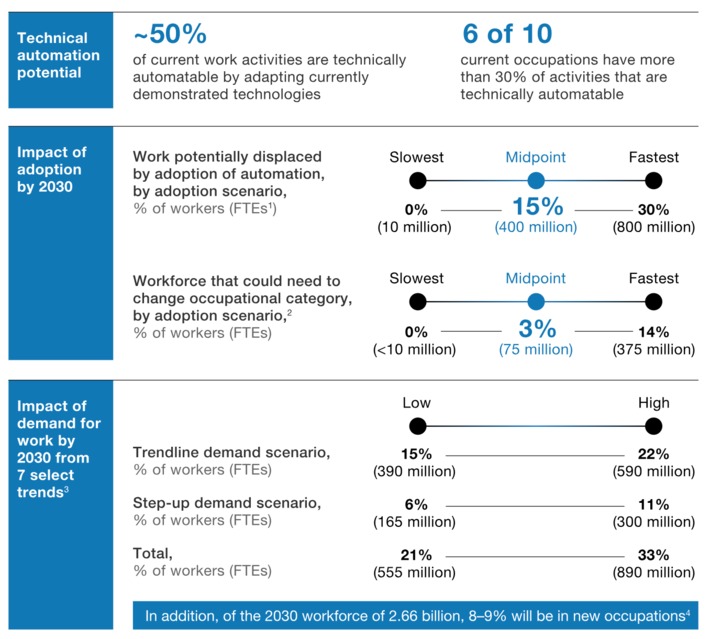
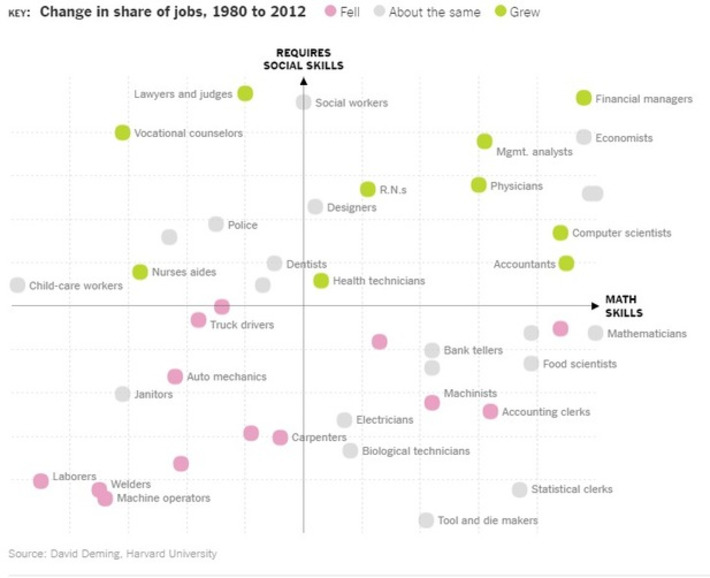

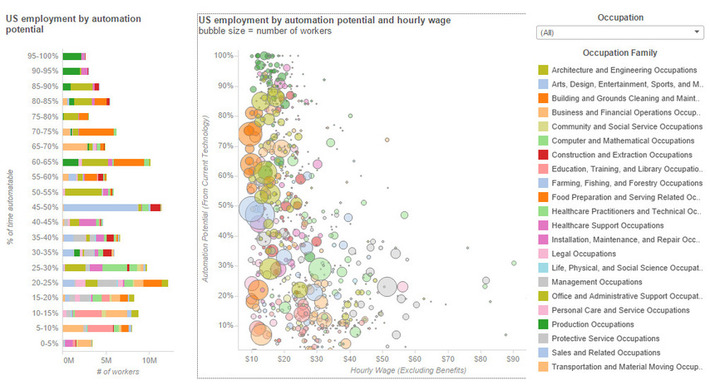
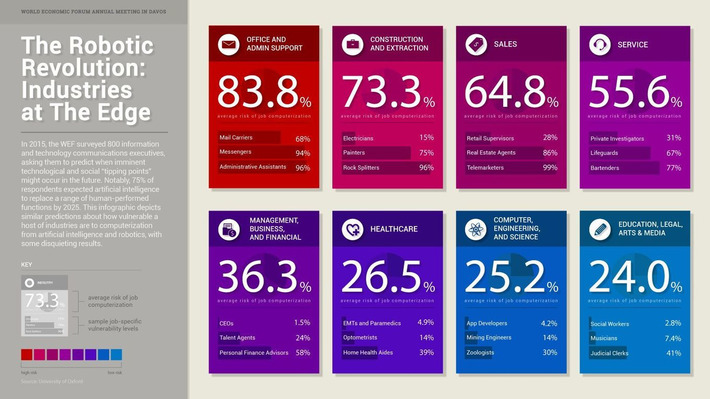








WHY IT MATTERS: if you have kids, show them this then encourage them to study!